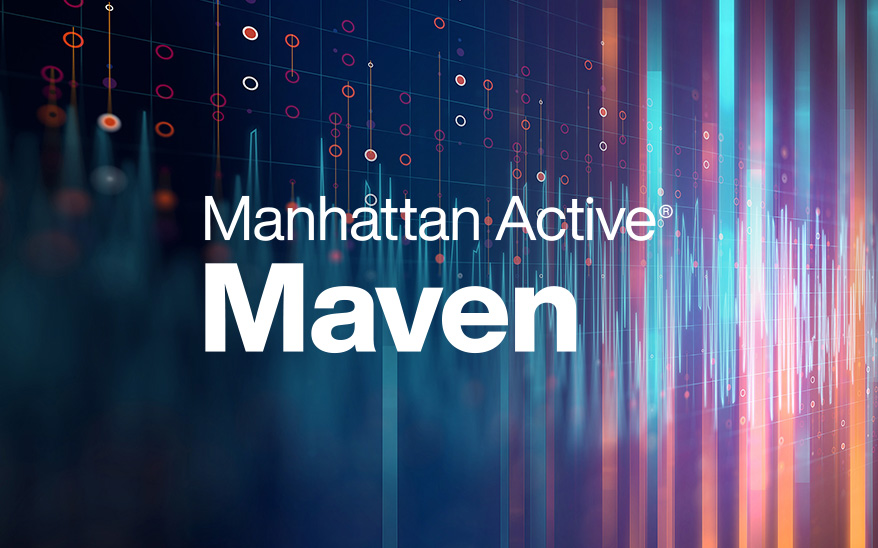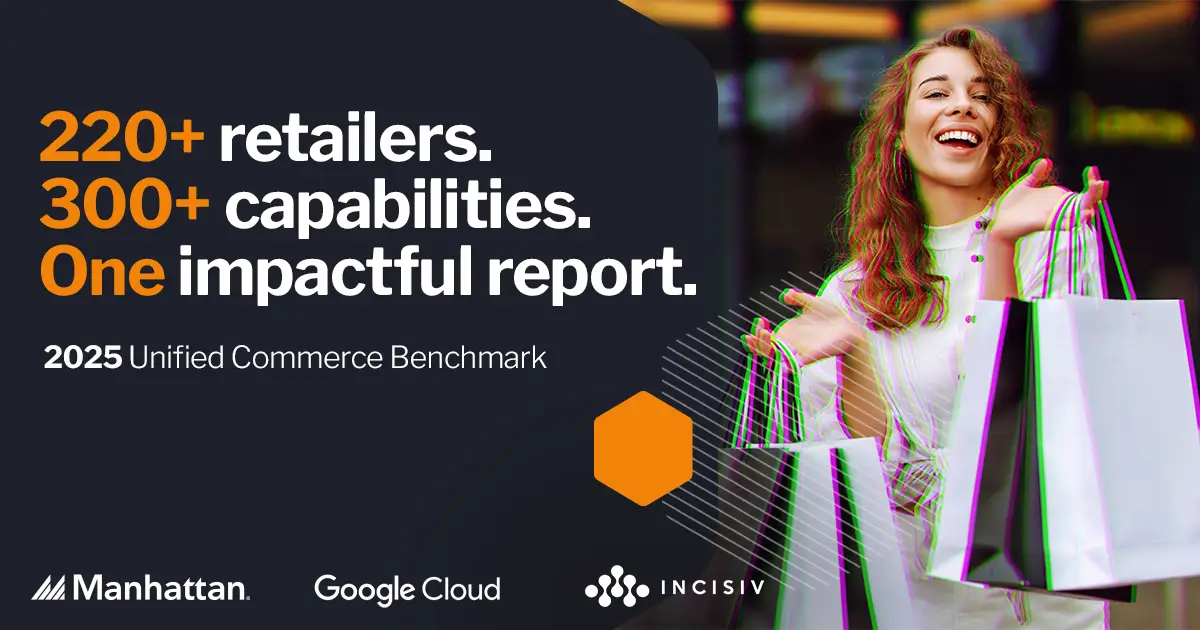The Critical Role of Precision in B2B Order Fulfillment
- May 21, 2025
- Manhattan Staff
- 5 minutes

In business-to-business (B2B) commerce, precision in order fulfillment isn’t a luxury—it’s a necessity. Unlike business-to-consumer (B2C) transactions, B2B orders are larger, more complex, and governed by strict contractual and logistical requirements. A single misstep—whether a missed delivery window, incorrect quantity, or fulfillment from the wrong location—can ripple across a buyer’s operations and damage long-standing business relationships.
This post explores why precision matters in B2B order fulfillment, the risks of falling short, and the five essential ordering and fulfillment capabilities every B2B organization needs to get it right.
Why Precision Is Essential in B2B Fulfillment
In B2B, fulfillment is more than shipping a box. It’s about delivering the right items, in the right quantities, at the right time, to the right place—often with additional constraints like preferred carriers, special instructions, or future delivery dates.
A lack of precision can cause:
- Missed production deadlines
- Service-level agreement (SLA) violations and penalties
- Lost customers
- Escalating fulfillment costs
B2B buyers rely on their B2B suppliers to keep their business running. When B2B organizations like you get fulfillment wrong, they take their business elsewhere, or worse.
Consider the obligations for a wholesale medical equipment order. When a healthcare provider places an order, the end-to-end order lifecycle—from order placement to order fulfillment to executing logistics—can significantly impact customer satisfaction and patient outcomes. Timely, precise, and efficient order management is critical to the healthcare provider’s operations, which depend on the on-time receipt of parts to run patient-impacting equipment. Delays or errors in fulfillment can result in operational disruptions, potentially affecting patient care. Executing fulfillment at the highest standards is crucial in getting critical products to the B2B buyer’s customer, as promised.
The Risks of Inadequate Fulfillment Precision
B2B organizations that don’t prioritize precision in their fulfillment strategy face several critical risks, including the following:
Service-Level Failures
Missed delivery windows or incorrect shipments can lead to SLA penalties, strained customer relationships, and legal liability.
Perspective: A study revealed that most B2B suppliers report the cost of chargebacks/deductions due to missed service levels at less than 0.5% of sales (62%). But 20% report chargebacks/deduction costs at 1% of sales. Chargebacks/deductions at 0.5% of sales may result in 6-10% reduction of profits, significantly impacting bottom-line performance.
Customer Attrition
B2B buyers often rely on precise deliveries to meet their operational schedules and goals. Repeated fulfillment failures drive them to competitors who can deliver reliably.
Perspective: 68% of B2B buyers report being discouraged by order errors when placing orders online. These errors significantly damage buyer confidence, leading to lost sales opportunities and customer attrition.
Higher Operating Costs
Manual corrections, rush shipping, and increased support calls drive up fulfillment costs and reduce margins.
Inventory Imbalance
Without inventory management precision, B2B organizations risk over-allocating inventory to low-priority orders while under-serving key accounts.
Operational Disruption
Inaccurate orders require rework, impact customer service teams, and destabilize warehousing and logistics workflows.
Perspective: A study found that 27% of B2B businesses surveyed acknowledge their sales order processing is error-prone, leading to downstream fulfillment inefficiencies that cause delays, increased costs, and customer dissatisfaction.

Five Capabilities That Drive Precision in B2B Fulfillment
To meet modern B2B expectations and reduce risk, businesses must invest in fulfillment capabilities that emphasize agility, automation, and accuracy. Here are the five that matter most:
B2B companies can’t fulfill precisely if they don’t know what’s available. Today’s B2B companies must have a global, real-time view of inventory—including in-transit and future stock—across all fulfillment nodes (distribution centers, stores, suppliers, 3PLs) to meet B2B buyer expectations. This view must be presented to buyers’ pre-order to facilitate decision-making and avoid downstream fulfillment complications.
Benefits: Avoids stockouts, reduces overpromising, and intelligently matches inventory to demand.
B2B buyers demand delivery commitments they can count on before placing an order. Precise delivery date promising considers inventory status, cut-off times, transportation lead times, and even customer preferences—before the order is placed. Like real-time inventory visibility, accurate pre-order promises allow buyers to make informed decisions about their orders.
Benefits: Builds buyer trust, reduces cancellations, and improves conversion rates.
Modern fulfillment requires reallocating inventory on the fly, based on evolving priorities. Accurately prioritizing inventory utilization allows B2B organizations to meet customer commitments and avoid fulfillment delays that frustrate customers. This capability includes borrowing stock from future orders to fulfill urgent or high-value orders and automatically rebalancing future orders with inbound inventory when it arrives.
Benefits: Maximizes order fill rates, protects key accounts, and reduces idle inventory.
Lack of enterprise order management orchestration and manual processes combine to significantly slow fulfillment and increase the risk of errors. B2B companies need an intelligent orchestration engine that provides unified execution and tracking of fulfillment across all fulfillment nodes and systems. This vital capability automatically routes orders, consolidates shipments, and resolves exceptions without human intervention.
Artificial intelligence (AI) plays a critical role in automated order orchestration, providing the intelligence to automatically assess vast numbers of parameters in real-time across fulfillment locations, transportation options, and customers to determine the optimal fulfillment location for each order that meets the customer delivery promises (e.g., committed delivery date) at the lowest cost. Further, AI-powered orchestration can automatically detect order exceptions and dynamically determine order rerouting to maintain customer order promises without manual intervention.
Benefits: Ensures consistent fulfillment logic across the enterprise, improves reliability, and reduces costs from manual order intervention.
Giving buyers greater control over their fulfillment outcomes helps alleviate downstream fulfillment issues and conflicts that prove costly for B2B suppliers. B2B buyers expect fulfillment to reflect their specific requirements—whether that’s consolidated weekly deliveries, preferred carriers, or just-in-time fulfillment. Further, a B2B buyer’s requirements may change after order placement. With self-service-based buyer controlled fulfillment, B2B companies can empower B2B buyers with tools to set fulfillment preferences, track in-progress orders, and modify order while in fulfillment to support new requirements, such as rerouting orders to a new destination.
Benefits: Enhances the buyer experience, prevents order cancellations, and reduces chargebacks/deductions.
In Summary
B2B order fulfillment is a high-stakes operation. Precision isn’t optional—it’s the foundation of trust, efficiency, and growth.
By investing in the right capabilities—like real-time visibility, intelligent order orchestration, and buyer-centric fulfillment strategies—B2B companies can reduce risk, cut costs, and strengthen long-term relationships.
If your current ERP or order management systems can’t deliver the precision your customers expect, it may be time to augment them with a modern B2B order management solution like Manhattan Enterprise Promise & Fulfill™—built specifically for B2B fulfillment excellence.
Want to learn more about how to elevate your fulfillment precision and performance? Check out Add Modern B2B Promising & Fulfillment Capabilities to ERP.
Related Assets

Elevating B2B Sales with Inventory & Delivery Availability
Discover how Manhattan Enterprise Promise & Fulfill™ enhances inventory and delivery-date availability during buyer ordering and fulfillment optimization to elevate sales.

Expand B2B Fulfillment Operational Excellence
Uncover how Manhattan Enterprise Promise & Fulfill™ expands fulfillment operational excellence with advanced order routing optimization, order consolidation, and automated
exception management.

Enhance B2B Buyer Experiences
Learn how Manhattan Enterprise Promise & Fulfill™ enhances B2B buyer experiences with flexible buyer preferences, comprehensive order fulfillment transparency, and buyer control of fulfillment.





